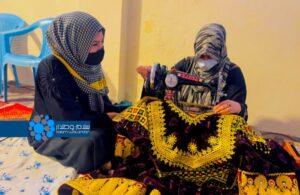KABUL (SW) – Officials of the National Blood Bank of Afghanistan and a number of government hospitals in Kabul say that due to the lack of fresh blood, most of the time hospital employees and patients have to search for blood donors for hours and even days.
Mohammad Nasser Sadiq, the head of Afghanistan’s National Blood Bank, states that people’s lack of knowledge about blood donation, shortage of employees and blood collection vehicles are among the main causes of blood shortage in the country. He says that currently only 15-20% of the citizens in Kabul donate blood to this bank.
Mr. Sadiq adds: “We are facing a shortage of fresh blood and the only solution to this problem is the increase of blood donors. We only have 15-20% blood donors, and these are only in the center. A person even comes from Helmand to Kabul for blood, it’s painful.”
The head of the National Blood Bank also says that this bank currently has only one car to collect blood, and if their facilities are increased, the problem of lack of fresh blood will be solved.
At the same time, the officials of a number of government hospitals, especially gynecological-obstetrical hospitals, say that they always need fresh blood, but most of the time fresh blood is not available and even the patients’ companions are not willing to give blood to their patients.
Malali Rahim Faizi, director of Malali Hospital in Kabul, says that blood shortage is a serious challenge. She said that this hospital faces the problem of lack of blood two to three times a week.
She adds: “Obstetric-gynecological patients have active bleeding. They need fresh blood urgently. When the patient is in the operating room and blood is not found here, there is no blood in the national blood bank either. This creates confusion and distress among our staff. The patient is facing death at any moment.”
Simin Meshkin Mohmand, the director of Rabia Balkhi hospital, also says that they mostly face the shortage of blood groups “A, B, AB, O, -RH” and even the patient’s companions are afraid of donating blood to their patients.
However, a number of patients at the National Blood Bank and Women’s Hospitals also agree that the National Blood Bank and hospitals do not have fresh blood and they have to ask their friends and acquaintances to donate blood to save the lives of their patients.
Nouria, a resident of Kabul, whose brother’s wife needed blood for a surgery, says that they spent hours looking for a blood donor to save her brother’s wife’s life.
In addition, a number of patients whose patients are facing the deficiency of one of the blood derivatives also say that their patients need blood transfusion from time to time and the deficiency of blood has faced them many times with problems.
Rahima, whose two children are suffering from anemia and brought them from Logar to Kabul for treatment, says that blood should be injected to her children every month or twice a month. But most of the time, due to the lack of fresh blood, she has to look for a blood donor on the roads.
She adds: “My daughter is seven years old, my other daughter is five years old. We inject blood every day. We come from Logar, we come here twice a month. Whenever it is like this, blood is not found, for example, we come from Logar to here, there is no blood there, we come here again, and there is no blood found here either.”
A number of patients who brought their patients from Nangarhar and Kandahar provinces to Kabul also say that the National Blood Bank of their provinces is facing a shortage of fresh blood, so they have to transfer their patients to Kabul for treatment.
ENDS






